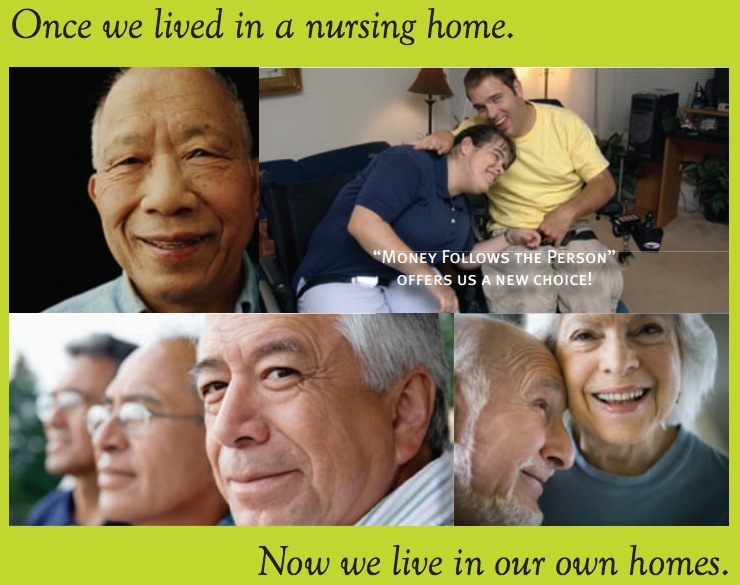Connecticut Nursing Home Residents Can Get Home Care Instead.

The main goal of Connecticut’s “Money Follows The Person” (MFP) Program is to transition several thousand elderly and disabled individuals from institutional care – primarily in Skilled Nursing Facilities – back into private homes and apartments in the community – providing maximum independence and freedom of choice about where they live and receive services.
According to Governor Dannel Malloy’s office, “The expansion of the ‘Money Follows the Person’ (MFP) program combines cost-effectiveness with improved quality of life for individuals who can live on their own with support services.”
Assisted Living Services, Inc. – our Connecticut-based home care agency – has been a non-medical home care provider for many of these patients and we believe the Program is working quite well to meet the needs of residents in our state. As with anything new it will take a quality improvement process to evaluate feedback, address problem areas, institute new changes, and measure results to make these transitions even smoother.
How Do People Qualify For “Money Follows The Person?”
To qualify, the person must:
- Be eligible for Medicaid in the Community
- Have lived in a nursing home for more than 6 months
- Be interested in living in the community
- Be eligible for one of the community service packages
What Services Are Available Under The Program?
Program Services Include:
- Transition Services and Support
- Housing Support
- Individualized Care Plans
- Emergency Back-Up Services

